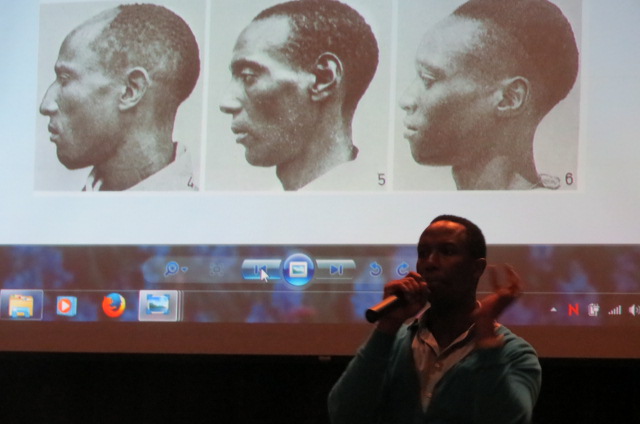Rwandan Genocide Survivor Addresses BHS Students
March 27, 2014
In 1994, the country of Rwanda was gruesomely divided between two ethnic groups, the Hutus and the Tutsis, resulting in one of the most immense genocides the world has ever seen. Eighty percent of the Tutsi population was decimated, but Rwandan citizen Emmanuel Habimana was able to survive. He said that he survived for a reason: to tell his story.
“I’m not [just] telling you my story, I’m asking you to be part of a change to slowly make our planet a better world, otherwise, my story is useless,” said, Habimana who visited Barnstable High School on Tues. March 25 to talk to students about his experiences escaping the genocide, and what he’s doing today to commemorate the twentieth anniversary of the event. Habimana also showed a trailer of the documentary he’s working on to spread awareness of the genocide.
The documentary clip, titled “Komora: To Heal,” stated that an estimated 1 million lives were lost in just 100 days the conflict between the two groups. He explained that through his journey creating the film, he’s acting as a storyteller for the orphans of Rwanda who lost their families to the genocide. He said that in order to rebuild a nation, we must learn from the survivors.
Habimana was 9 years old when the genocide began. He told the story of how government soldiers would walk to each house with a list of Tutsis to kill. He escaped by fleeing to the bushes where he hid while he heard his entire family being shot. Later on, he learned that only one of his sisters had survived.
“We have to learn how to respect differences,” Habimana said, referring to the conflict between the Hutus and Tutsis. He explained that reason behind the slaughter of the Tutsi population was simply because they were a minority and that they were “different,” despite that they shared the same culture and language as the Hutus. “Congo, Syria and many other places the same thing is happening… It’s crazy! People always say ‘Never again’ [but] is that really a reality?” Habimana said.
Habimana said his intention for telling his story about the genocide in Rwanda is to prevent a tragedy like that from ever happening again. “Make a change,” Habimana urged his audience, “Do the different thing.”


